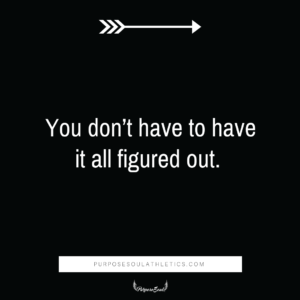The words “change” and “fear” go hand-in-hand. Fearing change is as normal as it gets, which is sort of ironic because when we’re scared of change, we often try to hide it—from others and from ourselves.
Wanted or unwanted, prepared or unprepared, life changes are a matter of the heart and therefore emotionally charged. These emotions lead us to make choices about how we’ll handle the change that’s in front of us.
“Be the change that you wish to see in the world.” ― Mahatma Gandhi
“Yesterday I was clever, so I wanted to change the world. Today I am wise, so I am changing myself.” ― Rumi
“If you don’t like something, change it. If you can’t change it, change your attitude.” ― Maya Angelou
These are some of my favorite quotes about change, but how in the hell are we supposed to apply such profound encouragement? In real, everyday life chances are while you may be inspired, you’ll still have a shred of doubt or fear, which is why I want to break down the different types of fear that surround changes as well as the choices we can make in these situations. Everyone has to start somewhere, right?
Types of Fear When Faced with Changes
There are several ways that we can experience fear of changes, and it’s often through mixed-emotions. These are some of the most common types.
- Excited fear. This type of fear typically happens when you are taking a leap to reach a goal, which brings about both excitement and fear.
- Anxious fear. This type of fear, as it relates to change, is when you’re experiencing anxiety at the thought of a change, wanted or unwanted, that hasn’t happened yet.
- Sad fear. This type of fear usually follows a loss. It’s when you’re afraid of how your life will go on and how you will survive and if you’ll be ok/happy again after experiencing a loss.
Choices When Faced With Fear
 I have to agree with the aforementioned Maya Angelou quote that change has a lot to do with your attitude. Although it’s not as simple as just snapping your fingers, changing your perspective, and feeling fearless, there is something to be said about the choices you make and how it affects both your perspective and the outcome.
I have to agree with the aforementioned Maya Angelou quote that change has a lot to do with your attitude. Although it’s not as simple as just snapping your fingers, changing your perspective, and feeling fearless, there is something to be said about the choices you make and how it affects both your perspective and the outcome.
The choice to run. Whether physically or emotionally, you may make the choice to retreat from the problem. When we don’t like something, it’s natural to want to “check out,” which we can do by literally running away from the issue or emotionally ignoring it.
If you want to run when faced with change, ask yourself: Is avoiding this good for me in the long run? If the answer is “no” then you probably want to choose another way to handle the change.
The choice to delay. Sometimes the change in front of you is a choice you can delay. It might be inevitable, but perhaps it’s something you can put off today. It’s not uncommon for the fear of change to keep people stagnant.
If you’re considering delaying a change, ask yourself: If I put this off what will my life look like a year from now? If I make the change today, what might my life be like a year from now? Of course, you won’t know the exact answer, but whichever scenario feels better to you is likely the direction you should follow.
The choice to embrace the change. The only other option is to embrace the change that’s here or forthcoming. Be brave, go with the flow and go easy on yourself. You don’t have to have it all figured out. The fear of change is often due to the fear of the unknown—what will life be like if I do this or if this person is no longer in my life? Remember, change can be highly emotional, and that’s completely normal! Fear is meant to keep us safe in moments of danger (i.e., situations that threaten our safety); it is not meant to keep us from living our lives.
If your choice is to embrace the change, ask yourself: what if I let go of my attachment to the outcome? You can’t predict the future so why stop yourself from making choices that are best suited for you. Life is for living, learning, and loving. All three of these values are with us every moment of every day in the choices that we make. The greatest way to open doors is to remain open yourself by first believing in yourself and knowing that you are supported, and you are loved. You’re resilient.
Want to chat more about the fear of change you’re experiencing? Contact me here.

